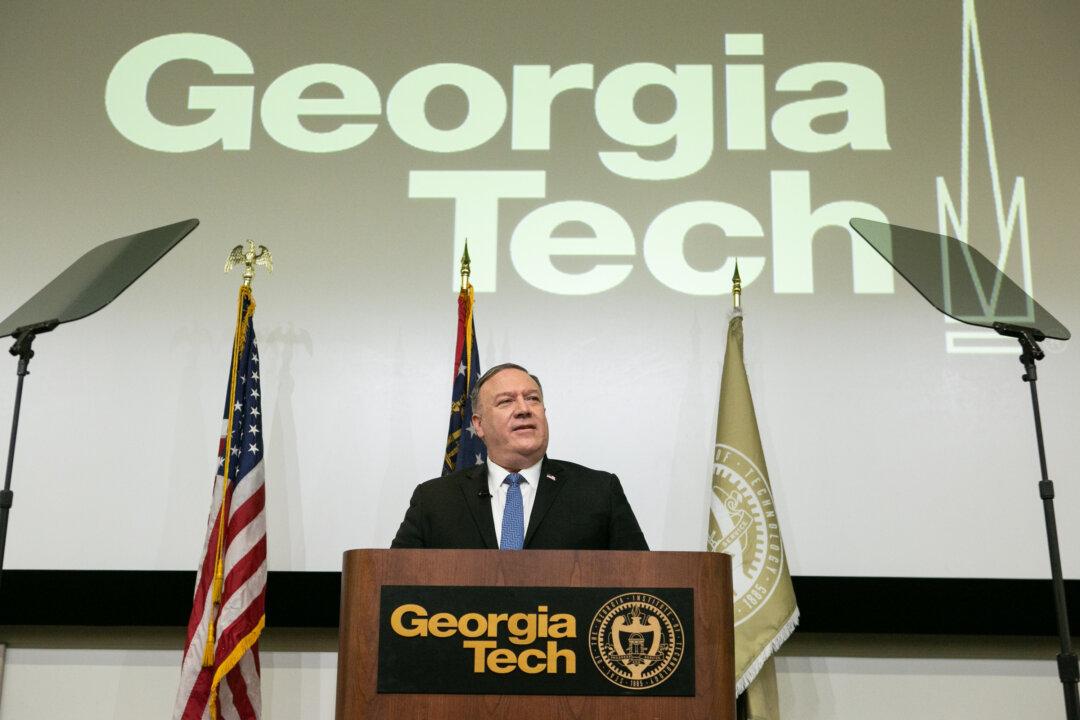American colleges are becoming “hooked on Chinese Communist Party cash,” while Beijing works to siphon cutting-edge U.S. research to China, U.S. Secretary of State Mike Pompeo warned on Dec. 9.
“So many of our colleges are bought by Beijing,” Pompeo said during a speech at the Georgia Institute of Technology, outlining Beijing’s aggressive efforts targeting U.S. research institutions. He added that the Chinese regime’s influence on American academics and students jeopardizes academic freedom, as it seeks to suppress critical voices on campus.





